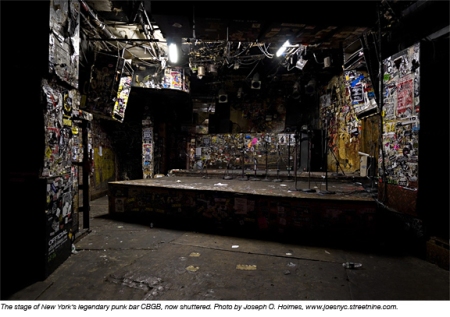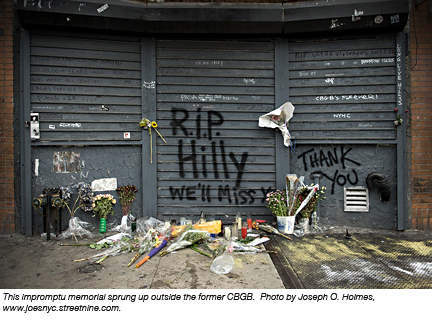Legendary tenor Luciano Pavarotti died last week. The New York Times called him “the great male operatic voice of his generation” in their thoughtful obituary. Quite simply, he set the standard for male operatic singers with his clear, ringing voice—his nickname was “King of the High Cs.”
More than that, though, he is credited with bringing opera to the masses, as some have put it. I think more accurately, he made many, many people who might not have otherwise, care about opera.
Partly he did this with a winning personality and natural charm. Partly he did it because he felt it was important to do so. Not everyone approved of how he went about it, least of all music critics. In the 1980s he began his Three Tenors projects with fellow tenors Plácido Domingo and José Carreras, a wildly successful franchise that sold millions of recordings. Later, he performed with a bewildering array of rock and pop stars—Jon Bon Jovi, Lou Reed, the Spice Girls, Barry White, Celine Dion and even the Godfather of Soul himself, James Brown. It didn’t matter to critics that many of these rock performances were charity concerts—he was still seen as cheapening his talents. Of course, his rock starlike fame also brought tabloid journalists out, with tales of missed concerts, his ongoing weight loss struggles and his dietary extremes when he failed.
Many wrote him off with the kind of dismissal that the apparent “wasting” of such a great talent often inspires. I’m afraid I bought into it—well, as much as I paid attention to opera at the time.
Thinking about it now, I realize that Pavarotti’s rock star adventures and popularity were key to his bringing so many unlikely candidates to opera. He made opera approachable, made it likable, by being that himself.
Ultimately, though, it comes down to that amazing, singular voice. Without that, nothing else would have come together. As I said, by the time I got around to embracing opera [thanks largely to following Marion’s lead], I had already dismissed Pavarotti as someone who had pissed away a considerable gift. Imagine, then, how humbled I was to hear the incredible recordings that have filled the airwaves since his death. Currently on his website is a quote of his, both in Italian and English: “I think a life in music is a life beautifully spent and this is what I have devoted my life to.” It was a life beautifully spent indeed.

The music world lost another great recently, although this passing occurred with much less fanfare. Hilly Kristal, the founder and owner of the legendary New York Bowery punk rock venue CBGB, died August 28 of complications of lung cancer. He was 75.
He started the club in 1973 as a country, bluegrass and blues club called CBGB & OMFUG—“Country, Bluegrass and Blues” and “Other Music For Uplifting Gourmandisers.” The name stuck but the music format didn’t. Instead, it became the birthplace and epicenter of the mid-1970s punk movement. The band Television persuaded Kristal to let them play the club and thus became the first rock band to do so. CBGB went on to serve as a launching pad for the Ramones, Patti Smith, Blondie, the Talking Heads and so many others.
Kristal was a folk music fan at heart and pretended not to care for some of the bands he booked, but in the New York Times’ excellent obituary, Patti Smith remembers it differently. “There was no real venue in 1973 for people like us. We didn’t fit into the cabarets or the folk clubs. Hilly wanted the people that nobody else wanted. He wanted us.”
Indeed, his musician-friendly approach to running his club served as the model for countless venues around the country. Here in Chicago, two venues that spring immediately to mind are Empty Bottle and the Fireside Bowl back when it booked all-ages shows.
In doing this, Kristal shaped rock music as much as any musician who graced his stage. Perhaps even more so. Some might say it was him being at the right place at the right time. But it was more than that. Despite his protestations, he understood that this music was important. And as a business owner, he knew that there was money to be made. Crowds poured in, drawn by punk’s irresistible energy. Record label execs soon followed. Careers and fortunes were made. Music changed.
By the time I finally made it to CBGB for the first time, it’s time had passed. They still had music every night, but the scene had moved on to other clubs. But you could still feel the energy, the history, the ghosts in this long, narrow, divey joint that had remained as resolutely scruffy as its now gentrifying Bowery neighborhood had been when it opened. And that was as it should be. Rock music needs to feel subversive and at least a little bit dangerous. So do its venues.
Thank you, Hilly. Rest in peace.

Back to Blue Kitchen
September 13, 2007 at 5:14 pm |
[…] Saying goodbye to an Italian baker’s son and a New York saloon owner who both changed music big time, at What’s on the kitchen boombox? […]